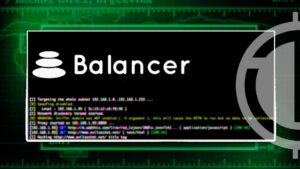
Crypto entrepreneur Justin Bons recently pledged his support for a proposal to increase the maximum Ether balance for Ethereum validators. Bons stated that the distribution of power was essential for Ethereum’s decentralization, irrespective of the number of validator nodes.
Justin Bons took to Twitter earlier today to make the case for increasing the maximum Ethereum validator balance:
1/6) I support Ethereum's latest proposal to increase the max validator balance to 2048 instead of 32 ETH
— Justin Bons (@Justin_Bons) June 19, 2023
What matters for decentralization is the distribution of power, not the number of nodes
Forcing organizations to run more nodes is inefficient & obscures centralization!
Bons, who founded Europe’s oldest cryptocurrency fund Cyber Capital, told his Twitter followers that the maximum validator balance should be increased from 32 ETH to 2048 ETH. Ethereum validators are currently required to stake a minimum and maximum of 32 ETH in order to be able to qualify as a validator node.
Justin Bons, who also serves as Cyber Capital’s Chief Investment Officer, stated:
Counting nodes is not how blockchain decentralization should be measured. The balance of power between distinct & competing parties involved in block production is a far better measure.
As a self-styled crypto researcher since 2014, Bons clarified that the latest proposal would only increase the maximum stake allowed on a single node. The minimum requirement of staking 32 ETH would remain the same for all Ethereum validators. It is important to note that this proposal is not an official Ethereum Improvement Proposal (EIP).
Justin Bons argued that forcing organizations to run more nodes was an inefficient method that obscured centralization. He added that the latest proposal would address the inefficient “circus” of singular parties running hundreds of validator nodes. According to him, it would encourage participation by lowering overhead on the P2P layer.
Bons added that the proposal to increase the maximum validator balance would also reduce the cost of staking over the entire network. He presented the proposal as a tool to make ETH token economics more efficient leading to further decentralization. According to the crypto entrepreneur, the proposal would also cut out the middlemen involved in the staking process.













